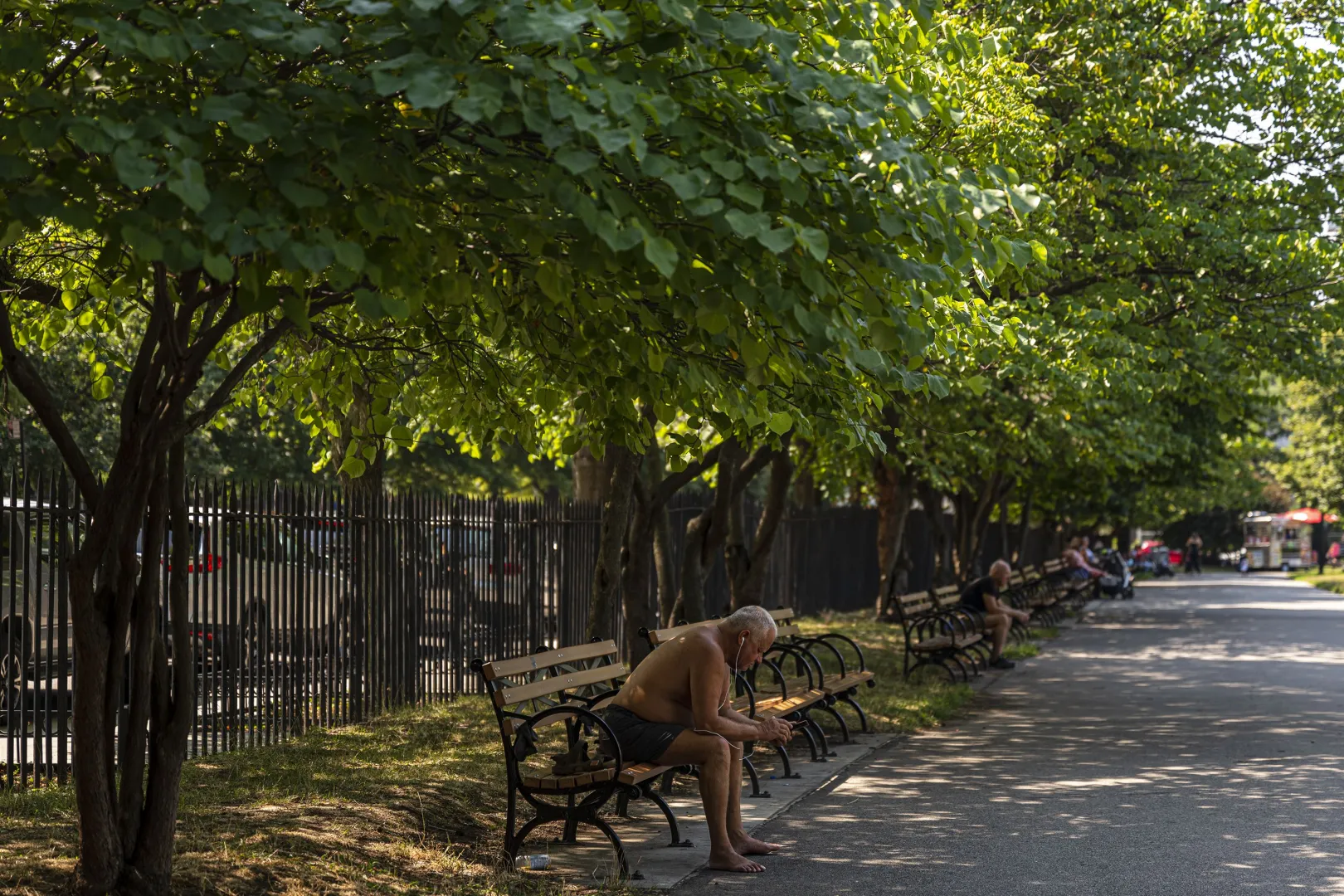How to check in on neighbors during a heat wave — and possibly save a life
Experts say New Yorkers should come with specific, explicit questions and plans on what to do next.

A man put his sandals on the bench and kept cool under the shade at McCarren Park in Williamsburg on Friday, July 22, 2022. Photo: Hiram Alejandro Durán/THE CITY
 This article was originally published on by THE CITY.
This article was originally published on by THE CITY.
In the midst of a heat wave, a door knock or phone call could make a difference.
Damaris Reyes, executive director of Good Old Lower East Side, said that during last summer’s heatwave, organizers with the housing and preservation nonprofit knocked on about 5,000 doors in the neighborhood, asking people, especially elders, if they needed help or to be taken to a cooling center.